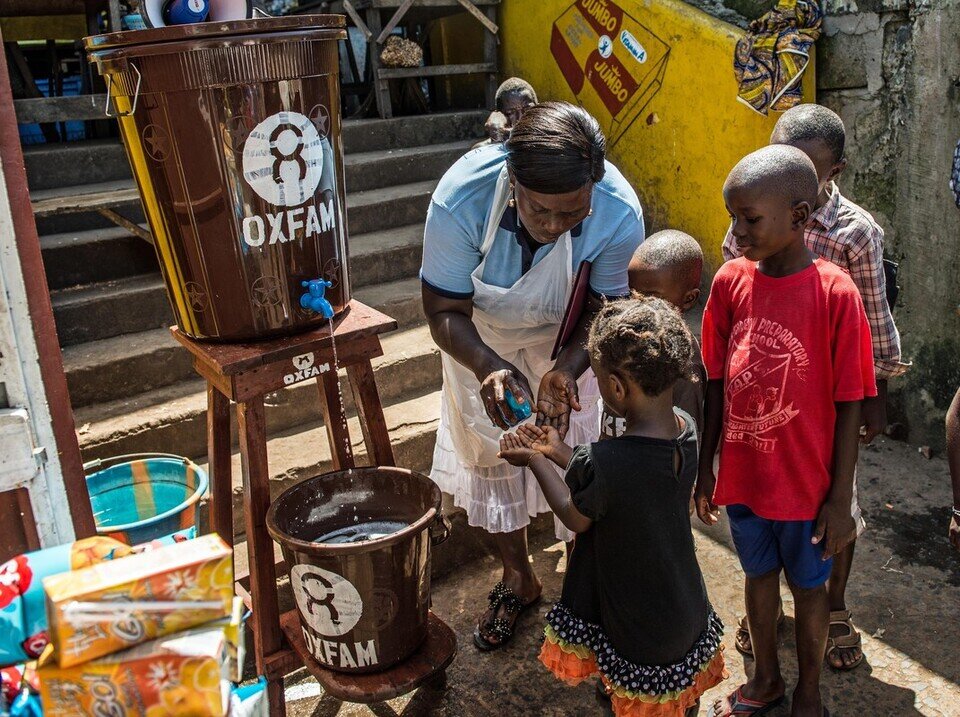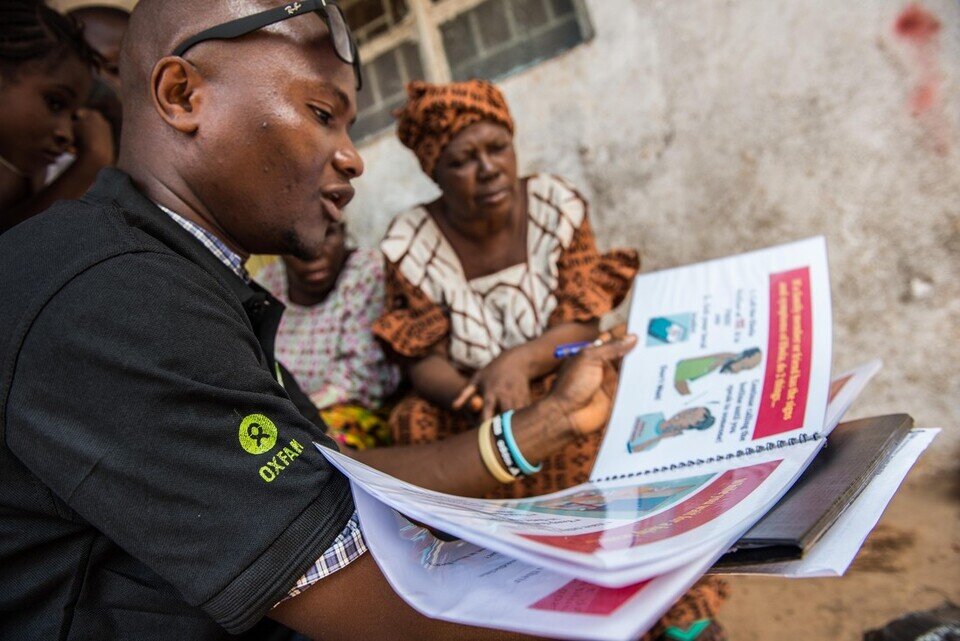2014年10月18日
More military, more medics and more money needed to prevent definitive humanitarian disaster of our generation (只有英文版)
More troops, funding and medical staff are urgently needed if we have a hope of stopping Ebola spiralling out of control, international agency Oxfam warns today.
In a battle against the clock, with less than two months left in the window to curb the spread of the virus ravaging Liberia, Sierra Leone and Guinea, there is still a crippling shortfall in military staff to provide the logistical support that is desperately needed. This includes building treatment centres, providing flights, and both engineering and logistical support.
More doctors and nurses are needed to staff treatment centres. There is also a significant shortfall in funding that must be filled to support the emergency humanitarian response.
Oxfam is calling for an EU Foreign Ministers meeting in Brussels on Monday to push European countries to follow the UK’s lead in responding so far. The EU can help put the world back on track in the fight against Ebola by boosting military and medical personnel, committing life-saving funds and speeding up the process so that pledges are delivered rapidly in order to protect and cure people.
Mayling Chan, Oxfam Hong Kong’s international programme director, said, ‘We are in the eye of a storm. We cannot allow Ebola to immobilise us in fear, but instead we must move toward a common mission to stop it from getting worse. Countries that have failed to commit troops, doctors and enough funding are in danger of costing lives. The speed and scale of the intervention needed is unprecedented. Only a concerted and co-ordinated global effort will stop the spread.
'Oxfam is concentrating its work in Sierra Leone and Liberia on helping to prevent the spread of Ebola, through clean water and sanitation provision and public education. Providing treatment is vital, however reducing the spread of infection is equally important, which is why we need the massive intervention of personnel and funding immediately’.
The Ebola crisis could become the definitive humanitarian disaster of our generation. The world was unprepared to deal with it. It is extremely rare for Oxfam to call for military intervention to provide logistical support in a humanitarian emergency. However, the military’s logistical expertise and capacity to respond quickly in great numbers is vital. The military mission must be under civil coordination.
The US and the UK have led the way, committing 4,000 and 750 troops respectively. However, only some of these troops are on the ground, with most of the US contingent due by 1 November.
Italy, Australia and Spain have committed no troops, despite Spain having a specialist medical expertise unit in its military. Germany has committed to military supply flights and plans a military hospital in the region. France has some military staff in Guinea where personnel are reportedly building a hospital, and has issued a call-up to medical reservists. While Oxfam understands the tremendous logistical challenges, it is urging the military to look at how this mobilisation can be both massively strengthened and sped up.
A fund established by theUN Secretary General in September to fight Ebola estimated a need for almost US$1bn for the next six months. To date, approximately only half of this is funded.
Oxfam is appealing for £22 million to triple its emergency response in Liberia and Sierra Leone to focus on preventing the spread of Ebola. It is nowhere near this target yet. Oxfam has stepped up its water and sanitation supply to Ebola treatment centres and community care centres, and is supplying more hygiene materials, like soap and bleach. It is raising awareness on how people can best protect themselves from catching the disease via radio, billboards and text messages. It is also distributing personal protective clothing for front line community health workers and burial teams, training community health workers and helping to build treatment centres. The aid agency is also working on prevention in Gambia, Guinea Bissau and Senegal, where there have been no widespread outbreaks of the disease.
The number of Ebola cases, and suspected Ebola cases, is almost 9,000, claiming more than 4,500 lives. Infection rates continue to grow with the number of cases doubling about every 20 days. The WHO has put the death rate from this outbreak at 70% and has warned that there could be 10,000 new cases a week in West Africa by December.
-Ends-
About Oxfam
Oxfam is a worldwide development organisation that mobilises the power of people against poverty
For media enquiries, please contact:
Sarah Chu
Senior Communications Officer
Telephone: + 852 3120 5280
Email: [email protected]
Photo: Tommy Trenchard / Oxfam Community health worker Marrion Thomson teaches children how to wash their hands at an Oxfam Hand Washing Point in Congo Town, an area in Freetown, Sierra Leone.
Photo: Tommy Trenchard / Oxfam Abdul Razak Baimba, A Community Health Worker talks with residents of Congo Town in Freetown (Sierra Leone) about Ebola. Oxfam has provided handwashing stands in the area and have also trained Community Health Worker teams who teach the community about the signs and symptoms of Ebola, how to prevent it and what to do if a family member becomes infected.


